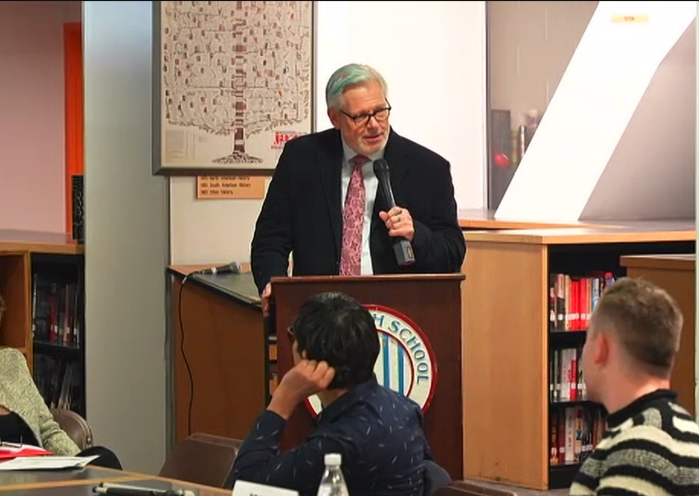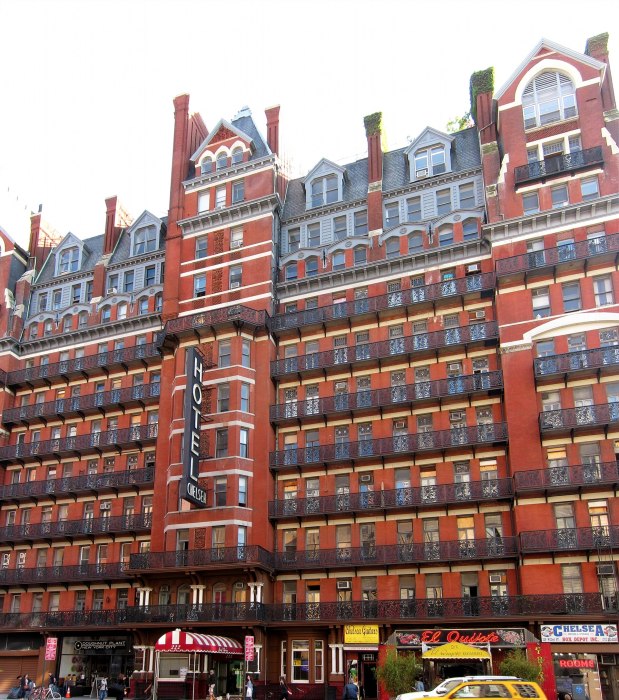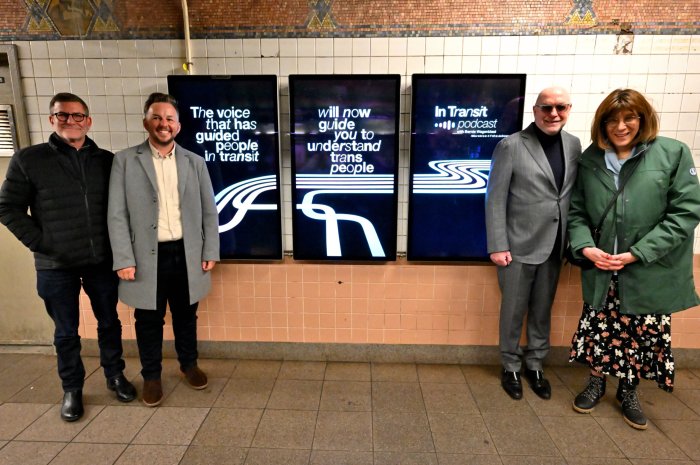The revolution must be funded—at least until our society achieves socialism, which is what Revolution Books on W. 26th St. would prefer. Many a revolution, however, has been stymied by the frustratingly capitalistic need for cash flow. To that end, the independent bookstore between Sixth and Seventh Aves. is in the midst of a drive to raise $100,000 before the end of the year.
“We took a hard look at ourselves,” said Revolution spokesperson Andy Zee, sitting in the year-and-half-old store, which is all clean white bookshelves and shiny wooden floors built by volunteer labor. “Does the world need this bookstore? Are we just the keeper of the faith of a radical left that is increasingly shrinking as the country moves more and more to the right? Should we have more modest aspirations? We said, resoundingly, ‘No.’ ”
The counterculture bookseller, which has existed in Chelsea in various locations for nearly three decades (most recently on W. 19th St.), has been struggling to survive as a nonprofit. It offers all manner of revolutionary paraphernalia, from books (everything from Marx, Engels, Lenin and Mao to Princeton professor Cornel West’s memoir) and donated revolutionary art (an original Cultural Revolution artwork from China was sold recently) to traditional Arab keffiyeh headdresses wrapped in plastic and Sarah Palin’s “Faith Based Birth Control Pills,” which come in a (empty) prescription bottle.
The store also holds weekly events, with a stage and lectern set up in front of a black curtain serving as the official-looking backdrop. Recently, Jon Jeter, the author and former Washington Post bureau chief for southern Africa, held a reading for his new book, and the store hosted a screening of a new biopic chronicling the life of radical lawyer William Kunstler.
“It’s a very liberating space to occupy,” says Joann Shapiro, a retiree who volunteers at the store doing “whatever’s needed,” from straightening bookshelves to producing programs. “There’s great discussion and debate, people speaking up and maybe dreaming a little bit about how things could be better, different.”
Shapiro visited in China in 1976 during the Cultural Revolution, and said she had been moved by the changes for the better that communism created. “Not that everything that went on there was perfect,” she admitted.
Connie Julian, the store’s development director, explained that a certain apathy set in after President Obama’s election last year, threatening to pacify otherwise dissent-minded citizens.
“There’s a huge need for people to get up and learn about and stop a lot of these very odious developments taking place in the world,” she said, noting that the store has bulked up its Spanish-language materials to appeal to an even broader audience. “It’s a cause of the ability of critical thinking and radical discourse to puncture this silence,” Julian added. “There’s nothing like Revolution Books anywhere in the city.”
Shreen Elkenani, a poet who produces an open mike at the store called “Pieces for Revolution, said the space offers one of the only forums “to get radical-minded people together” to perform their works.
“Radical poetry is different than anything else because it’s a communication between the artist and the audience,” said the 25-year-old. “The audience can probe and ask questions. There’s not a lot of places that would encourage that—to find a bookstore that encourages free thought. We do other events, but this is a special one because it is an environment that encourages it.”
The store currently pays market rent for its centrally located, 1,400-square-foot space under a five-year lease with annual increases, Zee said. Last year the owner of the property that housed the W. 19th St. store wanted to unload the entire building, which forced the move to W. 26th St., but Chelsea’s ever-increasing retail rents haven’t scared them from the traditionally progressive neighborhood.
Still, “Revolution Books can’t just keep on keepin’ on,” said Zee, who envisions the store “as a center of revolutionary and radical ferment.” “We need to greatly expand our reach.”
But first, the rent must be paid—hopefully a few months ahead of time—and then the money would be used for the basics, like advertising. “Most of the people who would value this store and find it a resource do not know about it,” Zee said. They also need signage and want to increase their stock, which requires paying publishers up front. Then there’s the high-interest debt to pay off, accounting for about $25,000.
The store began selling its books online last week, but the current Web site is outdated and in need of new infrastructure. Zee also hopes to make events visible to a wider audience, and dreams about offering their programming instantly by streaming onto the Web and broadcasting on cable television. The events could also be filmed and made into DVDs. And, of course, it would be nice to have some paid staff to supplement the all-volunteer effort.
The $100,000 fundraising drive, which began on Sept. 1 and will run through the end of 2009, is actually the third they’ve held in the last year. They raised $10,000 to move from 19th St. last year, and when the new location needed renovations, last June’s donations totaled about $30,000.
The current drive has yielded $30,000 so far, and Zee added that volunteerism has also accounted for much of the drive’s success.
With so much fundraising, does the bookstore worry about exhausting its base with a constant need for capital? “Well, if they’re tapped out they’re tapped out,” Zee acknowledged. “But you don’t change the world by being exhausted. Being part of something larger should be energizing.”


































